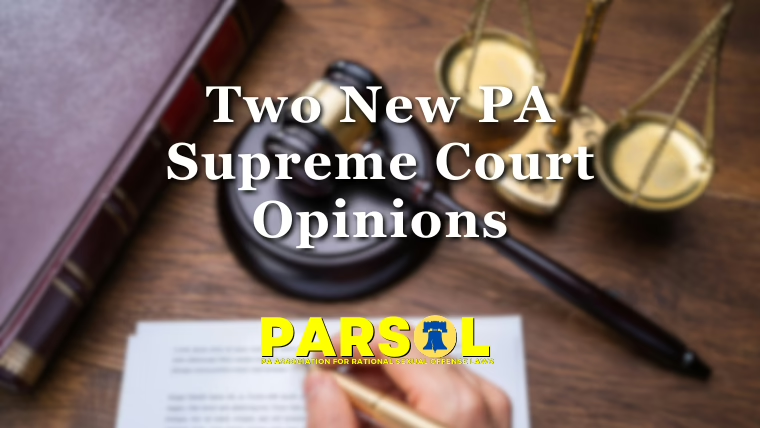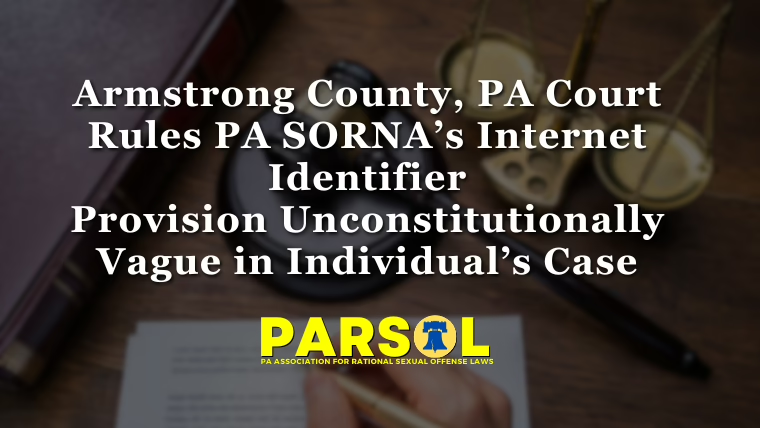The Pennsylvania Supreme Court (SCOPA) heard oral arguments in Commonwealth v. Torsilieri on May 23, 2023. I don’t think the arguments were all too exciting. However, several interesting issues were made such as at what recidivism rate the General Assembly considers to be “high risk”, whether the irrebuttable presumption test is useful anymore, whether “not universally true” an accurate benchmark for a consensus, and whether there is a difference between losing the right to bear arms versus losing the right to reputation, as both are fundamental. But the one piece of discussion I found highly interesting that was brought up by Justices Brobson and Wecht was whether this is a flat earth society moment.
Justice Brobson said, regarding what it would take for them to override a legislative finding made by the legislative and executive branches, “the legislature, General Assembly, and the Governor would have to engage in a flat earth society moment for us to do it.” Justice Wecht, later on, when questioning Attorney Aaron Marcus (attorney for Mr. Torsilieri), further expanded on this byasking,“What is the principled standard that we articulate to give our imprimatur to a consensus? When Galileo spoke, he spoke against the consensus. I think he had some bad consequences for that… I’m interested in hearing from you what we tell the public and put into the law of Pennsylvania as to when scientific or evidentiary standards rise so high that we pronounce them the consensus. And whether we’ve, in doing so, put ourselves at risk of waking up the next day and finding out that it’s not the consensus.” Justice Donohue also asked Attorney Marcus whether or not his experts said there is a consensus that individuals convicted of a sexual offense have a low rate of committing new sexual offenses. Mr. Marcus said all three experts did, both in testimony and their reports.
Many thoughts come to mind about these statements. First, with Brobson, arethe legislative and executive branches engaged in a flat earth society moment? At this time, no. The belief when first creating registries was that PFRs were at a high risk of committing new sexual offenses. This idea was established by the U.S. Supreme Court when stating “the risk of recidivism posed by those convicted of a sex offense is ‘frightening and high,’” Smith v. Doe, 538 US at 103. The U.S. Supreme Court was presented with a paper that gave a high recidivism rate. We shouldn’t fault them because there weren’t really any other studies done in this field at the time for a rebuttal: they had to make a decision based upon what was before them. Pennsylvania followed with it and forged ahead. Our early lawmakers were doing what they thought was right with the knowledge before them. What I’m getting at is you don’t know you’re wrong (in a flat earth moment) until someone comes along to prove you’re wrong. This brings me to Justice Wecht.
He aks three questions from the Court’s view: 1) when do we know there’s enough evidence to change the tide, 2) won’t we face backlash from the public, and 3) what if we’re wrong? The first point falls in the line of questioning from Justice Donohue, is there an agreed consensus amongst the experts? After the Smith v. Doe ruling, many studies within the past 25 years have shown PFRs pose a low risk to society. Kristen Zgoba, Ph.D. and Meghan Mitchell, Ph.D. compiled 18 research articles, though there are plenty more, from the past 25 years. They found the majority of the research agreed 95% of sexual offenses were committed by first-time offenders. This leaves a recidivism rate of 5%. How should SCOPA break this news to the public? Simply lay it all out on the table, or in the opinion. An evidentiary hearing occurred for both sides to present their research. Torsilieri’s team brought in three world renowned experts while the Commonwealth only had a statistician to refute the data. Torsilieri’s experts unanimously agreed that PFRs pose a low risk to society. Again, there are 25 years with well over 18 studies and live testimony all in agreement on low reoffense rates. How much more of a higher standard do they want?
Wecht’s second point of facing backlash will undoubtedly happen. There will be an outcry from the public, victim advocacy groups, news outlets, the General Assembly, and the Governor. Galileo faced the same thing when he presented evidence the Earth revolved around the sun. He was tortured, defamed, and blacklisted. Nonetheless, he held to his beliefs because that was where the evidence pointed to. The Catholic Church eventually convicted him of a “strong suspicion of heresy,” a lesser charge than heresy itself. SCOPA, like Galileo, has the duty to inform everyone of the truth, even when it’s not popular. Remember when your parents and teachers told you doing the right thing isn’t always popular? I can understand Justice Wecht’s third concern of what if we’re wrong. I’ll say it again; how can you be wrong with 25 years of a plethora of research all in agreement?
We are in that time when correction is needed to have a Pennsylvania that is safe and just for all. Let’s hope the Justices have the courage to do it.




